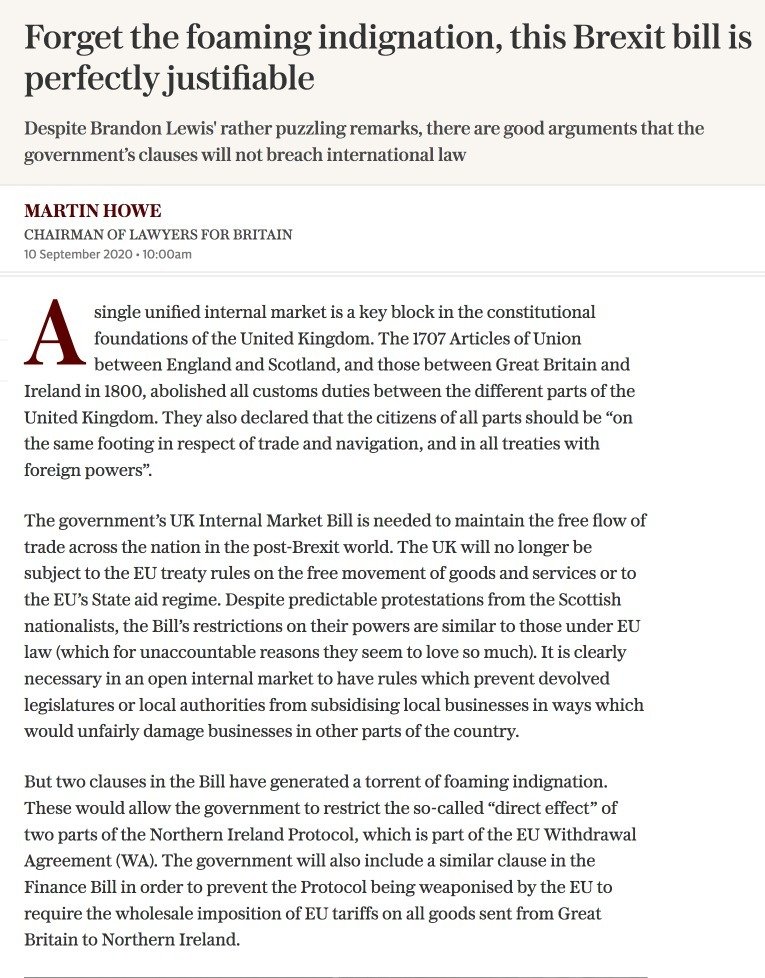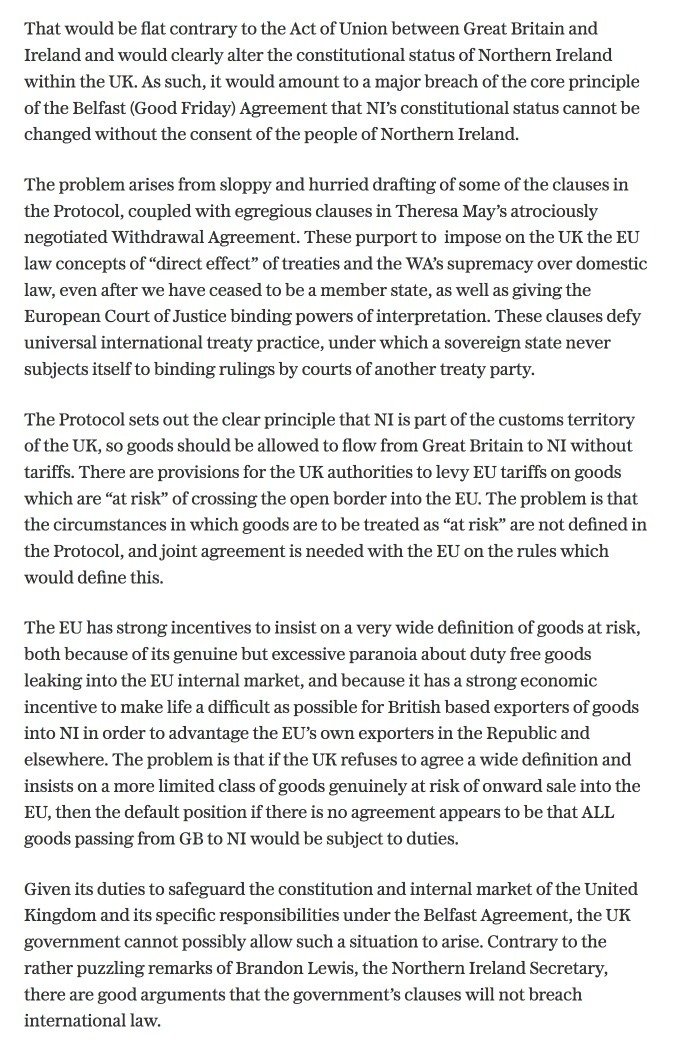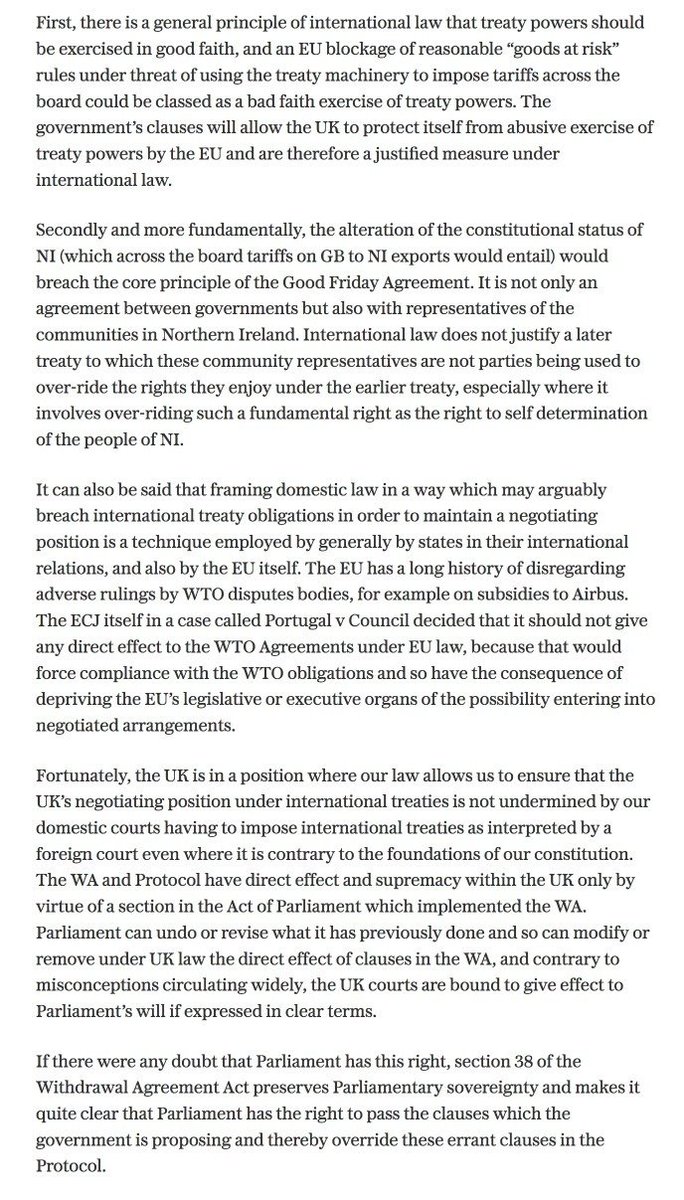The UK Internal Market Bill allows the Govt to restrict the so-called “direct effect” of parts of the NI Protocol, in order to avoid them being weaponized by the EU to require the wholesale imposition of EU tariffs on all goods sent from GB to NI. https://www.telegraph.co.uk/politics/2020/09/10/forget-foaming-indignation-brexit-bill-perfectly-justifiable/
The Protocol sets out the clear principle that NI is part of the customs territory of the UK, so goods should flow from GB to NI without tariffs. There are provisions for the UK authorities to levy EU tariffs on goods which are “at risk” of crossing the open border into the EU.
The problem is that the circumstances in which goods are to be treated as “at risk” are not defined in the Protocol, and joint agreement is needed with the EU on the rules which would define this.
The EU has strong incentives to insist on a very wide definition of goods at risk... because it has a strong economic incentive to make life a difficult as possible for British based exporters of goods into NI in order to advantage the EU’s own exporters in the RoI and elsewhere.
But if the UK refuses to agree on a wide definition and insists on a more limited class of goods genuinely at risk of onward sale into the EU, then the default position — if there is no agreement — appears to be that ALL goods passing from GB to NI would be subject to duties.
Given its duties to safeguard the UK constitution and internal market and its duties under the GFA, the UK Govt cannot allow such a situation to arise. Contrary to the puzzling remarks of B. Lewis, there are good arguments that the govt’s clauses do not breach international law.
1. As a general principle of international law, treaty powers should be exercised in good faith. An EU blockage of reasonable “goods at risk” rules under threat of using the treaty machinery to impose tariffs across the board could be classed as a bad faith exercise of powers.
The government’s clauses will allow the UK to protect itself from abusive exercise of treaty powers by the EU and are therefore a justified measure under international law.
2. Across the board tariffs on GB to NI exports would breach the core principle of the GFA. It is not only an agreement between governments but also with representatives of the communities in NI.
International law does not justify a later treaty to which these communities are not parties being used to over-ride the rights they enjoy under the earlier treaty, especially where it involves overriding the right to self- determination of the people of NI.
3. The WA and Protocol have "direct effect" within the UK only by virtue of a section in the Act of Parliament which implemented the WA. Parliament can undo or revise what it has previously done and so can modify or remove under UK law the direct effect of clauses in the WA.
If there were any doubt that Parliament has this right, section 38 of the WA Act preserves Parliamentary sovereignty and makes it quite clear that Parliament has the right to pass the clauses which the Govt is proposing and thereby override these errant clauses in the Protocol.

 Read on Twitter
Read on Twitter




